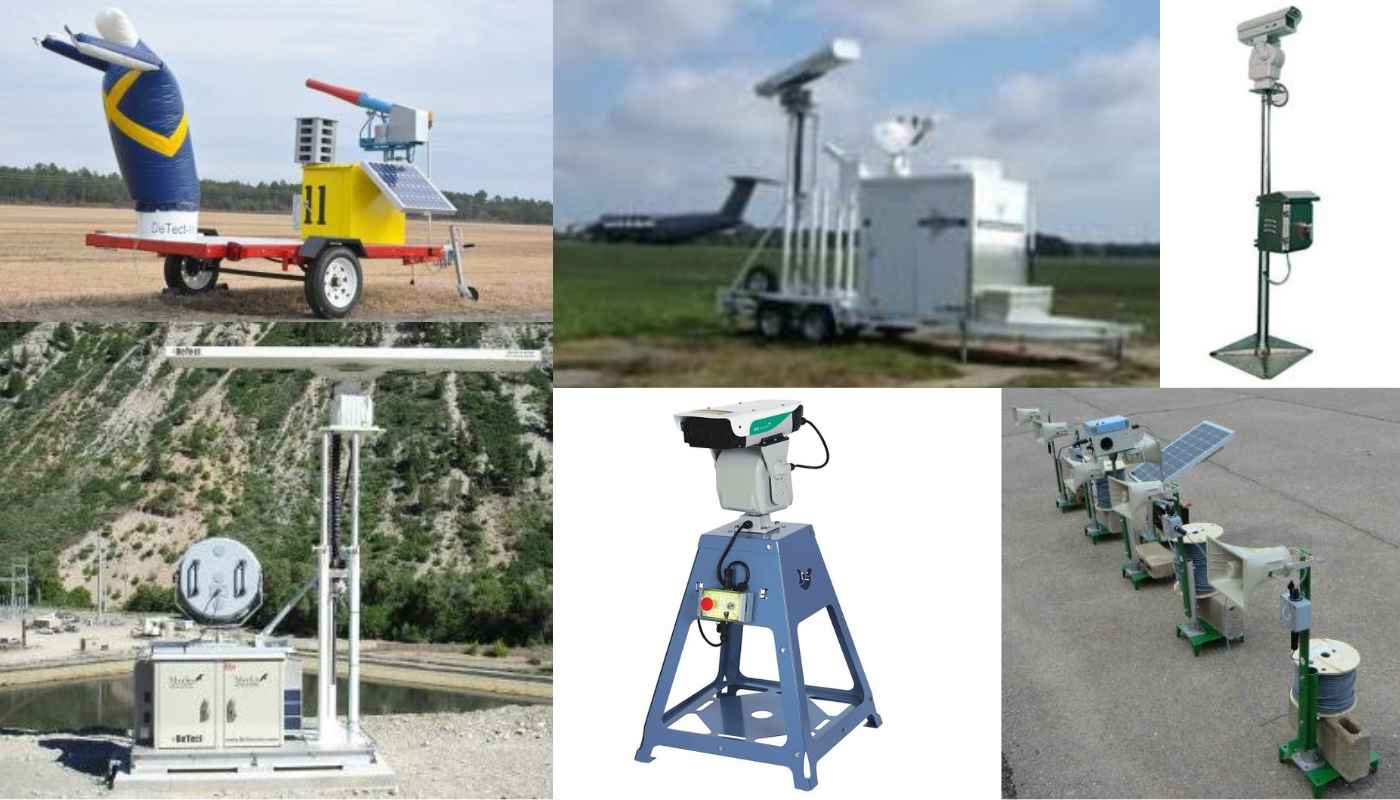Bird Control Systems and Acoustic Bird Scarer in South Korea in 2025
South Korea’s skies are a bustling hub of activity. From bustling international airports like Incheon to the serene landscapes dotted with agricultural fields, the country thrives on a delicate balance between human progress and environmental harmony. But this harmony can be disrupted by feathered friends – birds. While majestic in their own right, bird strikes pose a significant threat to aircraft safety and incur millions of dollars in damages annually. This is where bird control systems and, specifically, acoustic bird scarers come in, playing a crucial role in safeguarding South Korea’s airspace in 2024.

The Feathered Foe Bird Strikes
Imagine a commercial airliner thundering down the runway, ready for takeoff. Suddenly, a flock of pigeons darts across its path. A collision, known as a bird strike, can have catastrophic consequences. The impact can damage vital aircraft components, disrupt engines, and even cause complete loss of control. The threat extends beyond commercial flights – military aircraft and private planes are all vulnerable.
South Korea, with its ever-increasing air traffic, is particularly susceptible to bird strikes. Factors like overflowing landfills attracting birds, changing migration patterns due to climate change, and the proximity of airports to agricultural fields all contribute to the risk. To ensure the safety of passengers, crew, and aircraft, robust bird control solutions for airports are essential.
Acoustic Bird Scarers Take Center Stage
Acoustic bird scarers are one of the most popular and effective methods of bird control in South Korea. These ingenious devices emit distress calls, predator sounds, and other noises that frighten birds away from protected areas. Imagine a high-tech orchestra playing a symphony specifically designed to keep unwanted avian visitors at bay!
Here’s why acoustic bird scarers are a winning choice:
- Effectiveness: Studies have shown that acoustic bird scarers can significantly reduce bird activity in target areas.
- Environmentally Friendly: Unlike chemical deterrents, acoustic bird scarers pose no threat to the environment or other wildlife.
- Human-Friendly: Modern acoustic bird scarers can be programmed to operate at frequencies inaudible to humans, minimizing noise pollution.
- Versatility: These devices come in various sizes and configurations, making them suitable for a wide range of applications, from airports and farms to industrial sites and food processing facilities.
South Korea’s bird control manufacturers are constantly innovating, developing new and improved acoustic bird scarers. These advancements include:
- Solar-powered models: These eco-friendly options eliminate the need for constant battery changes and reduce reliance on the power grid.
- Directional speakers: These targeted deterrents allow for precise control over the sound dispersion, minimizing impact on surrounding areas.
- Automatic scheduling and randomization: These features prevent birds from habituating to the sounds, ensuring continued effectiveness.
Beyond the Acoustic Symphony
While acoustic bird scarers are a powerful tool, a comprehensive bird control system often involves a combination of techniques. Here’s a look at some other methods used in South Korea:
- Avian Radar: These sophisticated systems detect and track bird movements in real-time, allowing airport wildlife management teams to take proactive measures.
- Laser Bird Deterrents: These devices emit harmless laser beams that disrupt birds’ flight patterns, causing them to veer away from protected areas.
- Habitat Modification: This strategy involves altering the landscape around airports or agricultural fields to make them less attractive to birds. This could involve removing nesting sites, controlling vegetation, or managing water sources.
- Wildlife Biologists: These experts play a crucial role in understanding bird behavior and developing effective control strategies. They analyze data on bird migration patterns, feeding habits, and nesting preferences to create targeted solutions.
Airport Bird Control Regulations in South Korea play a vital role in ensuring the safety of the skies. These regulations mandate specific measures that airports must take to manage bird populations and prevent strikes. This includes conducting regular wildlife surveys, implementing habitat modification programs, and using effective bird control systems.
The Future of Bird Control
The fight against bird strikes is an ongoing battle, but South Korea is at the forefront of innovation with its bird control systems. Acoustic bird scarers, along with other techniques, are proving to be valuable tools in safeguarding the skies. As technology continues to evolve, we can expect even more sophisticated and effective bird control solutions to emerge in the years to come.
FAQs
What are common bird control systems used at South Korean airports?
South Korean airports utilize a multi-pronged approach, including acoustic bird scarers that emit distress calls, avian radar for real-time bird tracking, and habitat modification to make the area less attractive to birds.
Why are bird control systems important in South Korea?
With busy airspace and agricultural areas near airports, bird strikes pose a significant threat to aircraft safety. Bird control systems help mitigate these risks and ensure passenger and crew safety.
Are acoustic bird scarers eco-friendly?
Yes! Unlike chemical deterrents, acoustic bird scarers rely on sound to deter birds. Modern versions can be programmed to frequencies inaudible to humans, minimizing noise pollution.





